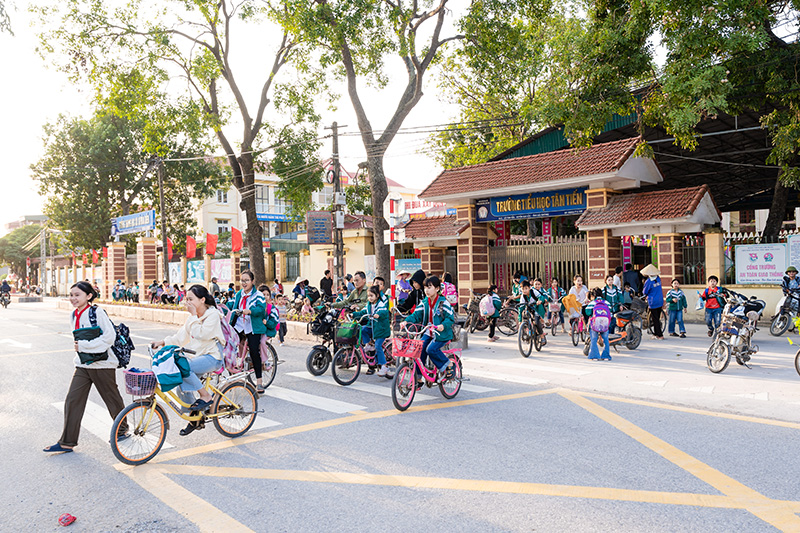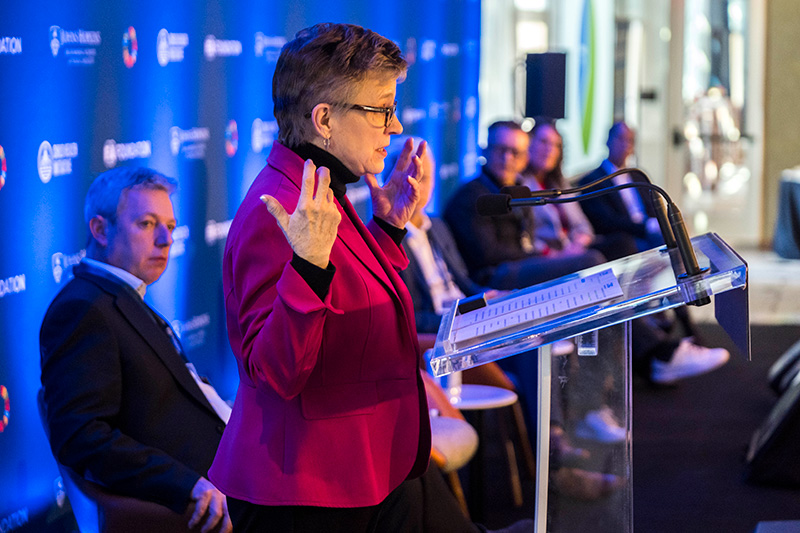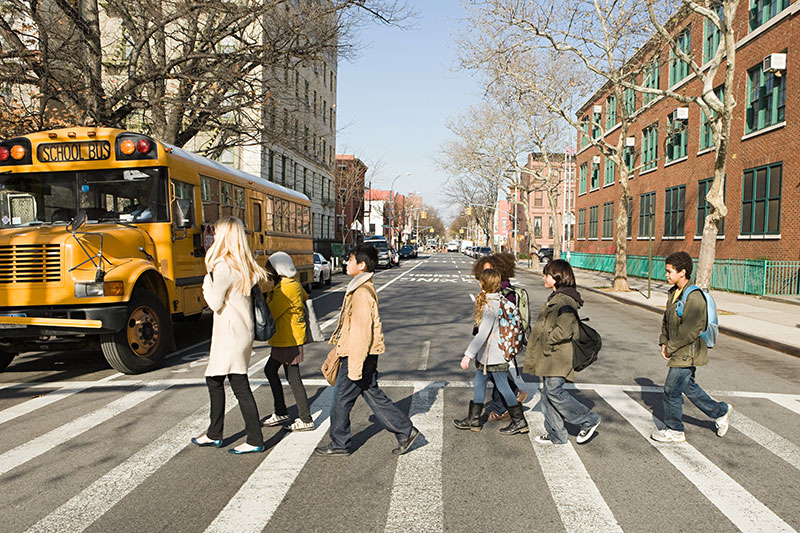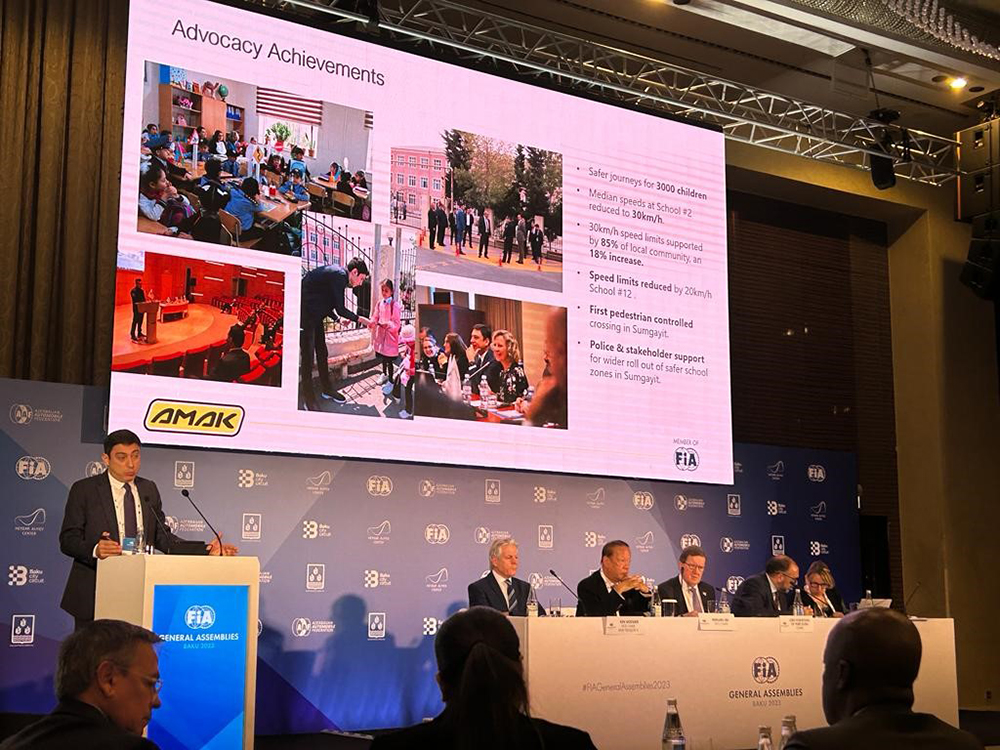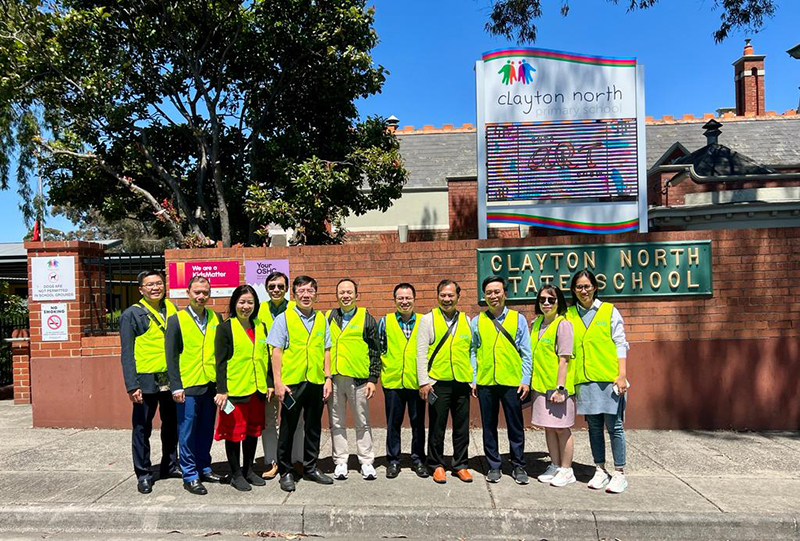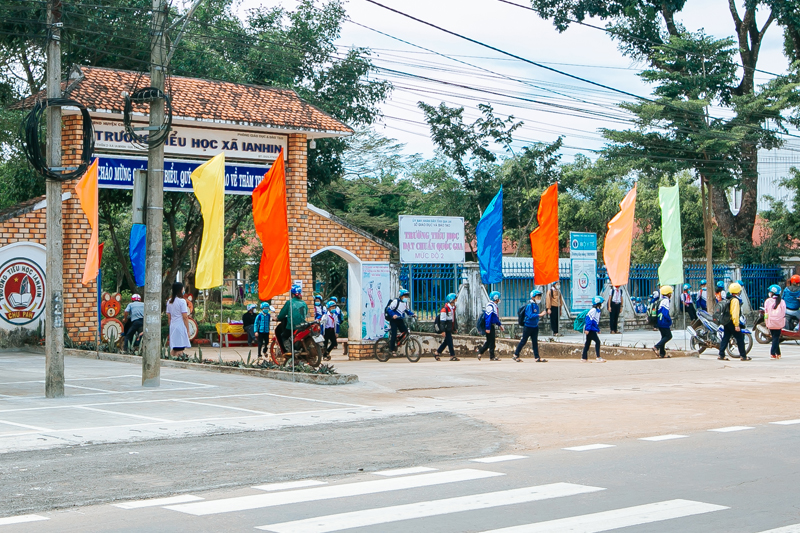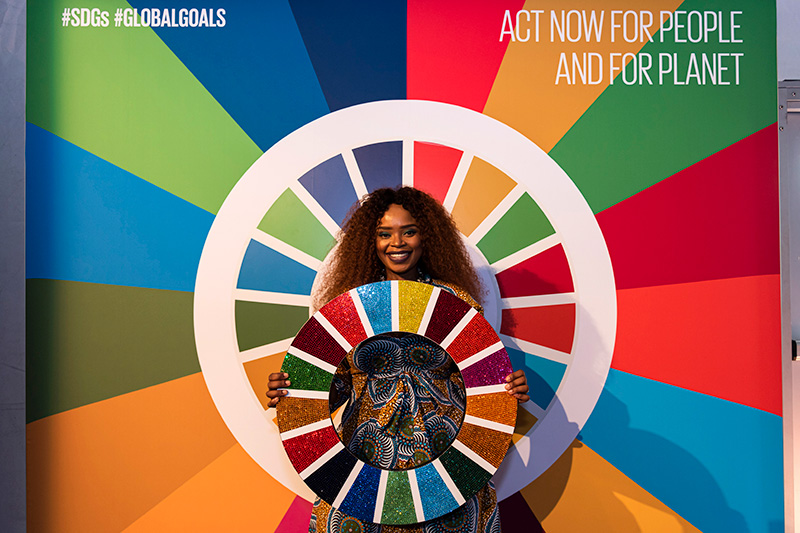Child poverty and road traffic injury report launched at Habitat III Prepcom
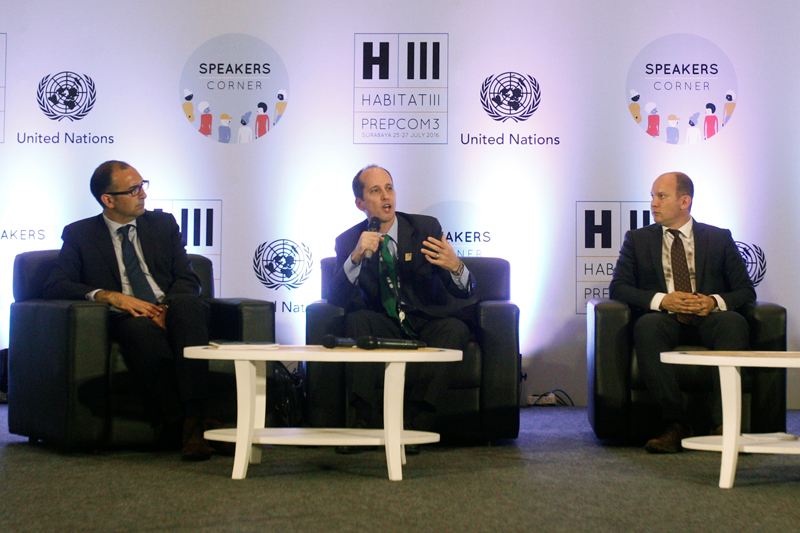
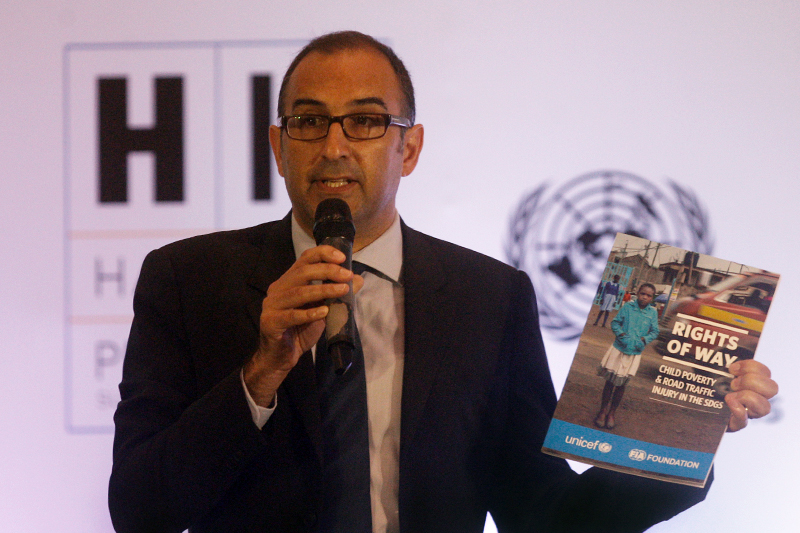
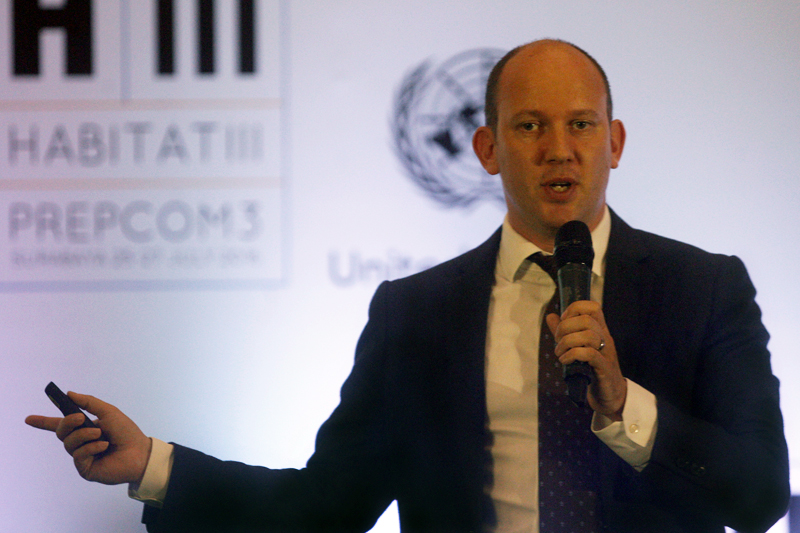

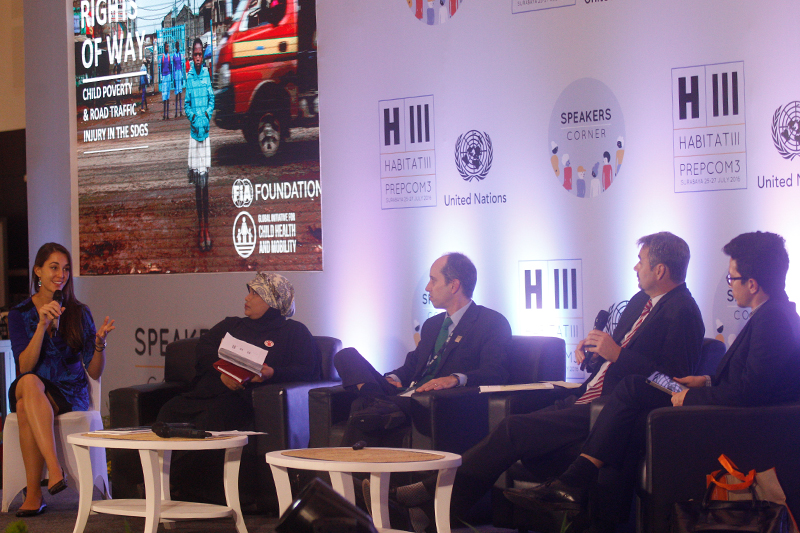
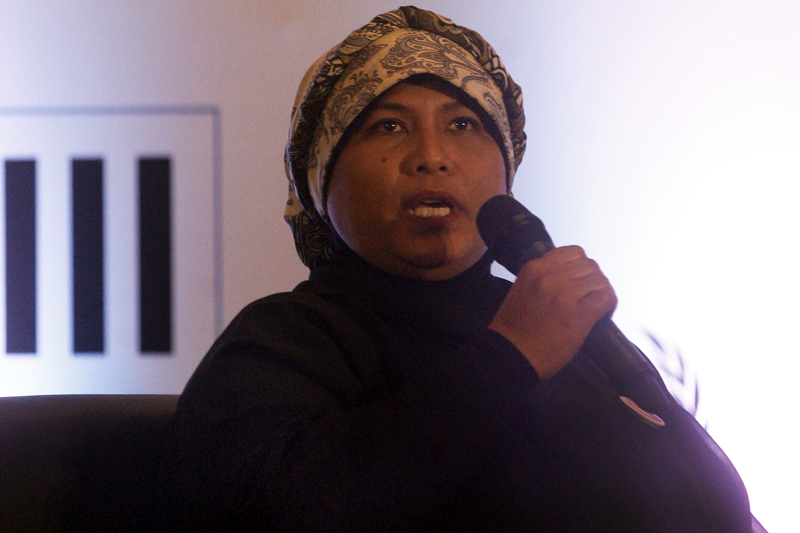
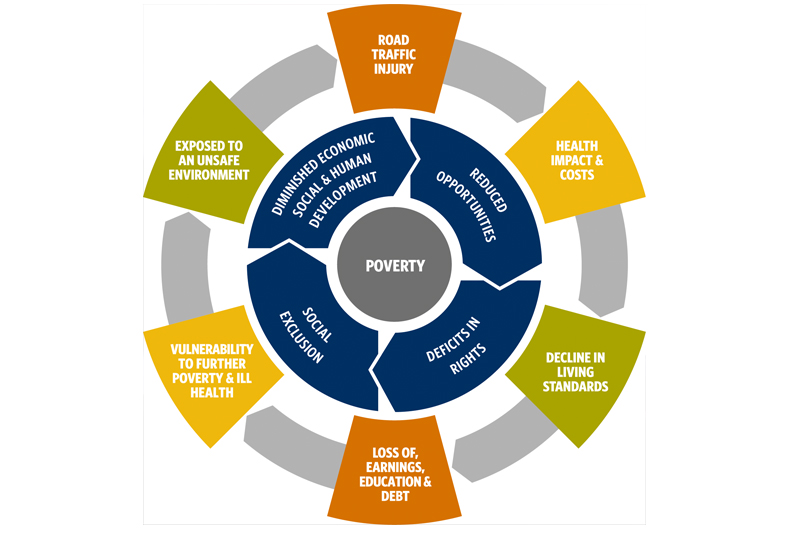
Road traffic injury exacerbates child poverty imposing a severe burden upon the young and the poor across low- and middle-income countries, and must be addressed as a global sustainable development priority, according to a new joint report by the FIA Foundation and UNICEF.
The advocacy research was launched on 27 July in Surabaya, Indonesia, at the final UN global Habitat III preparatory conference for Governments to negotiate the final text of the New Urban Agenda.
Rights of Way: child poverty and road traffic injury in the SDGs, calls for a ‘children first’ focus in the Sustainable Development Goal (SDG) and Habitat III New Urban Agenda aimed at protecting vulnerable road users and providing a safe and healthy journey to and from school for every child. It is a first research advocacy output of the Global Initiative for Child Health and Mobility (CHI) convened by the FIA Foundation and including UNICEF, Save the Children, UNEP, the World Resources Institute (WRI), and the Overseas Development Institute (ODI).
The report launched at a Habitat III event co-hosted by the FIA Foundation, UNICEF and the Government of Brazil, reveals the extent of the impact of road traffic injury on families living in poverty across low- and middle-income countries. Children from poor families are vulnerable to road traffic injury; when tragedy strikes, they suffer severe and protracted effects; and too often, victims and their families are locked into a cycle of poverty. Globally, road traffic injury serves as a brake on poverty eradication and development.
As a response, the international community must focus on the objective of a safe and healthy journey to and from school for every child by 2030 as a priority within the New Urban Agenda and the SDGs. This involves ensuring safe routes to school for all children, with walkable pavements, safe road design and effective speed management. Other key measures outlined in the report include:
- prioritising pedestrians and cyclists in urban planning and increasing investments in safe infrastructure for non-motorised transport to encourage active, low carbon, mobility;
- improving vehicle safety on school journeys with helmets for motorcycle passengers, seatbelts and safety checks for school buses;
- and also encouraging policies to address wider health impacts from transportation, reducing vehicle emissions and improving air quality.
The report draws on the work of key CHI partners including the WRI’s ‘Cities Safer By Design’ principles and the UNEP’s Share the Road initiative developed with the FIA Foundation. Case study and research material was also provided by the Amend NGO and International Road Assessment Programme.
Launching the report, FIA Foundation Executive Director Saul Billingsley said: “Poverty eradication is a core objective of the sustainable development and new urban agendas, but if we are to make progress in combatting poverty, we must address road traffic injury - the leading global killer of children in their second decade of life. As this report highlights, the solutions are readily available. As a global policy priority we must promote sustainable mobility as matter of social equity, and every child should be afforded a safe and healthy route to and from school.”
Presenting a wide range of case study material covering Dar es Salaam, Nairobi and Accra as well as six cities across Latin America and Asia, the report highlights the immense burden that road traffic injury places on families and children living in poverty, and indicates how this is serving to undermine global sustainable development objectives on poverty eradication. For Dar es Salaam’s urban poor road traffic fatality rates among children in 22 schools surveyed by the NGO Amend are at 45/100,000 population, a level exceeding other major public health crises. In Nairobi, families living in poor neighbourhoods on the outskirts of the city faced medical costs twenty times their monthly wage following a road traffic injury. While families hit by road traffic injury in Brazil, Colombia, Mexico, India, Indonesia and Thailand experienced loses of income of typically of over 50%, struggled to retain employment, faced a severe drain on living standards and loss of education.
Speaking at the report launch at the Habitat III PrepCom Carlos Cuenca, Head of the Division of Social Issues of the Ministry of Foreign Affairs, Government of Brazil said: “Tackling road traffic injury must be a priority in the New Urban Agenda. I was pleased that the 2nd Global High Level Conference on Road Safety, hosted by Brazil, addressed child safety as well as important issues of sustainable urban mobility, and we need to keep the focus of governments on this issue.”
During the Habitat III Prepcom, the UNICEF-FIA Foundation partnership on child road traffic injury made a plenary session submission which included coverage of the Rights of Way advocacy. Making the submission on behalf of the partnership, FIA Foundation Deputy Director Avi Silverman said:
“Children can be the cornerstone of social change, inclusion and sustainable development. Only once we guarantee the wellbeing of children is it possible to break the cycle of poverty and inequity.
“The New Urban Agenda must prioritise the protection of vulnerable road users, pedestrians and cyclists in policy frameworks and design principles. And a core part of this must be the protection of all children, including the poor and vulnerable. As a priority, and as a matter of child rights in the urban context, the New Urban Agenda must include a focus on providing a safe and healthy journey to and from school for every child. This involves ensuring safe routes to school for all children, with walkable pavements, safe road design and effective speed management.”
Key partners in the Child Health Initiative also called for action at the side event to launch the FIA Foundation-UNICEF joint report.
On behalf of the World Resources Institute Holger Dalkmann, Director, Strategy and Global Policy, highlighted WRI’s ‘Cities Safer by Design’ report and the efforts underway to implement its recommendations for prioritising walking and cycling in urban design. Brian Sriprahastuti, Senior Manager at Save the Children Indonesia supported the advocacy call and highlighted the need for sustainable mobility to protect children in South East Asia, discussing projects led by the NGO in Thailand and East Java.
Download the report here.
Watch the film accompanying the Rights of Way report here.
The UNICEF-FIA Foundation submission during Habitat III is available here
and as a text here.

